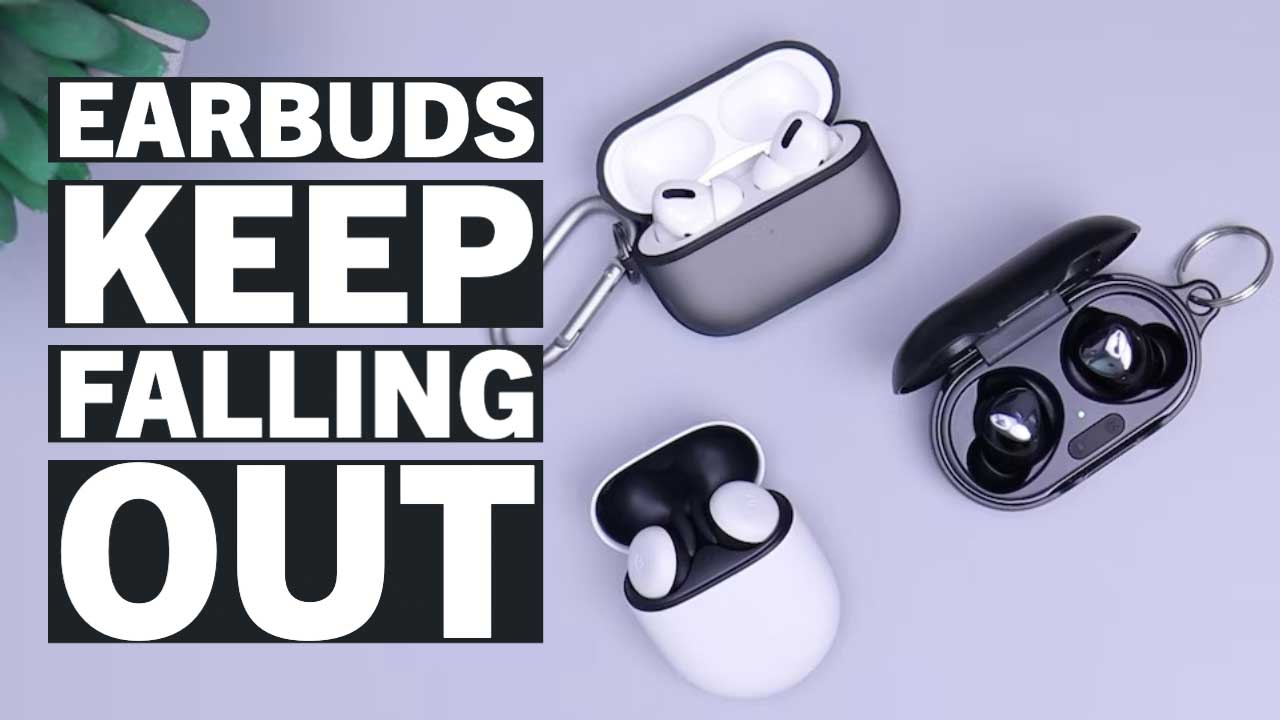How Long Can A Person Go Without Sleep? – The Impacts and Effects of Sleep Deprivation
ListedFit is reader-supported. When you buy through links on our site, we may earn a small commission.
Sleep is a fundamental part of our daily life and is essential for our physical, mental, and emotional well-being. Despite its importance, however, many of us take sleep for granted, often sacrificing it in favor of more pressing matters.
How long can a person go without sleep? Although it depends on the individual, the impacts and effects of sleep deprivation are serious, potentially even life-threatening.
In this article, we will explore how long a person can go without sleep and what the implications are. We will also look at how to get better quality sleep and how to recognize the warning signs of sleep deprivation. By the end, you will have a better understanding of how sleep deprivation can affect you and how to avoid it.
Table of Contents
- The Importance of Proper Sleep
- What is Sleep Deprivation?
- How Long Can a Person Go Without Sleep?
- Effects of Sleep Deprivation
- Long-term Impacts of Sleep Deprivation
- Warning Signs of Sleep Deprivation
- How Do I Get Better Quality Sleep?
- Treating Sleep Deprivation
- Summary and conclusion
The Importance of Proper Sleep
Sleep is essential for all aspects of health. It is when the body recovers and heals itself through repair of tissues, restoration of immune function, and metabolic regulation. Sleep is also when the brain becomes more efficient, learning and consolidating the things we’ve learned throughout the day.
Simply put, the healthiest and strongest version of us is when we are sleeping. Sleep is regulated by a complex interaction between biological and environmental factors.
The circadian rhythm, our internal sleep/wake clock, tells us when we feel tired and when we should be asleep. Environmental factors such as light and noise can disrupt this rhythm and cause insomnia, especially in people who are more sensitive to its effects.
Sleep deprivation occurs when these biological and external factors result in not getting enough sleep. It can be either partial or chronic.
- Partial sleep deprivation is when a person gets less sleep than they need on one or a few nights.
- Chronic sleep deprivation is when a person regularly gets less sleep than they need over an extended period of time.

What is Sleep Deprivation?
Sleep deprivation occurs when we don’t get enough sleep, either due to not going to bed early enough or staying up too late. The latter is more common and is often the result of overworking or having too many things going on at once.
Sleep deprivation is different from a lack of sleep, which means not getting enough sleep on a regular basis, usually because of a medical condition such as sleep apnea.
All of us get less sleep than we need from time to time, either due to stress, a change in our routine, or other factors. But for most adults, it is not a long-term problem.
As the hours without sleep accumulate, the body may start to experience the negative effects of sleep deprivation. This can happen after one or two nights of insufficient sleep.
How long can a person go without sleep? This depends on the person, but the rule of thumb is that after 24 hours without sleep, the body enters a state of mild metabolic shutdown. This means that glucose (sugar) needed for energy is no longer being produced, and the body starts using fat as an alternative energy source.
How Long Can a Person Go Without Sleep?
As mentioned, every person is different, so there is no specific answer to how long a person can go without sleep. The general rule of thumb is that after 24 hours without sleep, the body enters a state of mild metabolic shutdown.
Some people, however, are more sensitive to the effects of sleep deprivation than others. A person’s age, lifestyle, genetics, and health condition all play a role in how quickly and to what extent sleep deprivation affects them. For example, children and young adults tend to not feel the effects of sleep deprivation as much as adults.
Sleep deprivation is not just about getting less sleep than you need on one or a few nights. It is about regularly not getting enough sleep. Chronic sleep deprivation can have serious impacts and effects, whereas a one-off lack of sleep may not have any serious long-term effects.
TLDR: How long a person can go without sleep? It highly depends on the person, but it is recommended to get 7-9 hours of sleep a night. Getting less sleep is not only damaging for your health and well-being, but it can also have an impact on your productivity.
Effects of Sleep Deprivation
There are many short-term and long-term negative effects of sleep deprivation. Sleep-deprived people are more prone to accidents, such as car crashes due to drowsiness, fatigue, and reduced reaction times.
Sleep deprivation also strongly impacts our mental health. Beyond the tiredness and feeling of being “out of it” that many of us experience when we don’t get enough sleep, chronic sleep deprivation can lead to serious psychological and neurological disorders.
Sleep-deprived individuals are prone to mood swings, irritability, and depression. They also tend to have a reduced attention span and are more impulsive. Chronic sleep deprivation can lead to serious mental disorders, such as schizophrenia and psychosis. Sleep deprivation can also negatively impact our physical health. Among other things, sleep-deprived people are more likely to develop metabolic disorders such as obesity and type 2 diabetes.

Long-term Impacts of Sleep Deprivation
If someone is experiencing sleep deprivation, it’s important to find ways to improve their sleep quality and quantity. This is because prolonged sleep deprivation can have serious long-term impacts.
Chronic sleep deprivation can lead to several health issues, including obesity, diabetes, cardiovascular disease, and hypertension. It can also negatively impact the immune system, making the body more susceptible to infections and diseases.
Sleep-deprived individuals have higher levels of cortisol, the “stress hormone,” which causes the body to store more fat and also breaks down muscles. Sleep deprivation can also affect one’s mental health, leading to anxiety, depression, and mental exhaustion.
Warning Signs of Sleep Deprivation
How do you know if you’re experiencing sleep deprivation? Pay attention to changes in your behavior, mood, and energy levels. If you notice that any of these things are different, then it might be a sign that you aren’t getting enough sleep.
Both long-term and short-term sleep deprivation can lead to an increased risk of accidents and errors. Short-term sleep deprivation can make you feel groggy, tired, and unproductive, whereas long-term sleep deprivation can lead to serious health issues.
The most common warning signs of sleep deprivation include grogginess, trouble focusing, irritability, and being more emotionally reactive. It is also possible to experience hallucinations when sleep-deprived, so if you hear or see things that aren’t there, you should get more sleep.
When chronic sleep deprivation leads to more serious health problems, the warning signs may include unusual behavior, reduced productivity, and an increased risk of health disorders.

How Do I Get Better Quality Sleep?
Most importantly, start by acknowledging that sleep is important, and then, make sure you prioritize it.
Here are a few tips on how to get better quality sleep:
- Avoid caffeine – Try to go to bed at the same time each day.
- Avoid bright lights before bedtime and limit your screen time a few hours before bed. No phone, no tv, no computers!
- Have a relaxing bedtime routine
- Exercise regularly
- Create a sleep-friendly environment
- Hydrate
- Get enough Vitamin D
If you notice that you’re experiencing sleep issues, it’s important to address them. If you’re sleeping poorly, you can’t function properly.
Treating Sleep Deprivation
If you’re experiencing sleep deprivation and its negative impacts, it’s important to address it.
The first thing you should do is assess the reasons why you aren’t sleeping enough. After that, you can start working on improving your sleep quality and quantity. If the sleep deprivation is short-term (e.g., caused by a stressful event or change in your routine), it might be enough to just wait it out. However, if sleep deprivation is long-term, it’s important to take action and seek help.
If you have trouble falling or staying asleep, or if your sleep quality is poor, you should see your doctor. They can help you find the root cause of your sleep issues and come up with a plan to address them.
Try not to head straight for pills or alcohol to treat sleep deprivation as dependency on these things can form very quickly and leave you with bigger problems. Try identifying the root cause and work through it. Meditation before going to bed has been proven to be very effective.
Summary and conclusion
Sleep is an essential part of daily life and is essential for our physical, mental, and emotional well-being. Sleep-deprived people are more prone to accidents, such as car crashes due to drowsiness, fatigue, and reduced reaction times. Sleep deprivation also strongly impacts our mental health.
The key is to understand why you’re not getting enough sleep and start from there.
Author
Latest entries
 FitnessAugust 19, 2023Yohimbe vs Yohimbine: A Quick Comparison Guide
FitnessAugust 19, 2023Yohimbe vs Yohimbine: A Quick Comparison Guide AshwagandhaJune 16, 2023Is Ashwagandha Good for Working Out? Key Benefits Explored
AshwagandhaJune 16, 2023Is Ashwagandha Good for Working Out? Key Benefits Explored Sports HeadphonesMay 25, 2023Why Your EarBuds Keep Falling Out – Quick and Easy Solutions
Sports HeadphonesMay 25, 2023Why Your EarBuds Keep Falling Out – Quick and Easy Solutions Nike ShoesMay 12, 2023Do Nikes Run Big or Small? Decoding the Perfect Fit
Nike ShoesMay 12, 2023Do Nikes Run Big or Small? Decoding the Perfect Fit
Affiliates:
This post may contain affiliate links that at no additional cost to you, the site may earn a small commission. We only recommend products we would use ourselves and all opinions expressed on this site are our own.
General Advice:
The information provided in this article is for general informational purposes only. It is not intended as a substitute for professional advice. Always consult with a qualified healthcare professional before starting any new diet, exercise program, or making changes to your health routine.
Accuracy Advice:
While we strive to provide up-to-date and accurate information, the content in this article may not reflect the most current research or medical guidelines. We encourage readers to do further research and consult with professionals for more personalized advice.
Our Recommendations:
The products and services mentioned in any of our articles are recommended based on our independent research and personal experience. We are not sponsored by any company. We aim to suggest products and services we believe are of high quality and could be beneficial to our readers.






